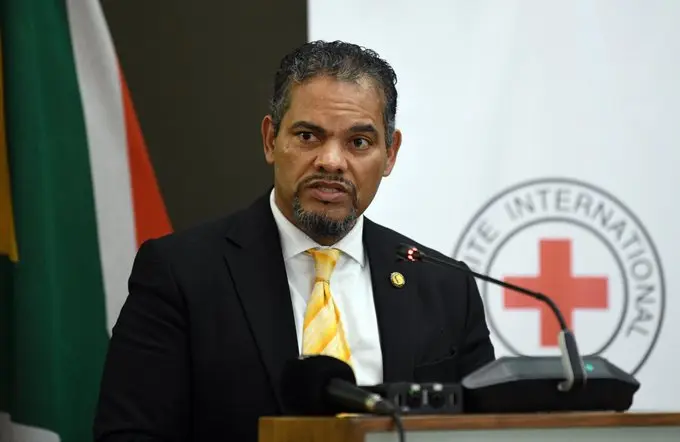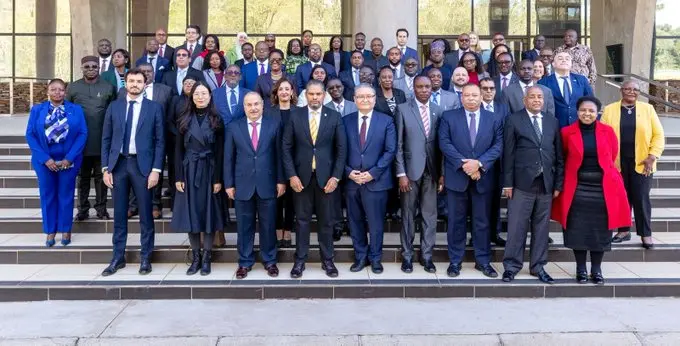Pretoria, August 21, 2025 - On World Humanitarian Day, South Africa’s Deputy Minister of International Relations and Cooperation, Alvin Botes, together with Jules Amoti, Head of the ICRC Pretoria Regional Delegation, convened a high-level gathering of African ambassadors and high commissioners. Their shared goal: to rally African Union member states behind a renewed political commitment to International Humanitarian Law (IHL) a pressing need amid escalating conflict across the continent. DIRCOICRC

Humanitarian diplomacy in motion
Marking the 76th anniversary of the Geneva Conventions on 12 August, the South African government, with support from the ICRC, spotlighted IHL's enduring importance in conflicts that continue to devastate civilian lives and infrastructure across Africa. ICRC
In 2024, South Africa co-launched a Global Initiative to Galvanize Political Commitment to IHL, alongside Brazil, China, France, Jordan, and Kazakhstan. Over 70 states have since joined this effort, demonstrating growing support for consistent, faithful application of these key humanitarian norms. DIRCOICRC
Conflict zones in focus: Why it matters
The urgency of fortifying adherence to IHL couldn’t be clearer. Conflicts in the DRC, Sudan, Mozambique’s Cabo Delgado, and across the Sahel have repeatedly exposed civilians and humanitarian workers to violence, forced displacement, and shrinking access to life-saving aid.
As Botes emphasized, reaffirming IHL isn’t merely symbolic—it’s about safeguarding hospitals, schools, and even the lives of aid workers amid daily violence. ICRC+1
Political commitment vs. reality
While many African countries formally adhere to the 1949 Geneva Conventions, gaps remain in implementation. Weak accountability mechanisms, political interference, and resource constraints often hinder enforcement of IHL principles from distinction and proportionality to the protection of non-combatants.
This joint DIRCO–ICRC initiative signals more than diplomatic polish it attempts to close the divide between lofty commitments and real-world compliance. As one ICRC statement put it, “International humanitarian law is only as strong as leaders’ will to uphold it.” ICRC

What comes next?
This high-level convening in Pretoria is a launching pad, not a finish line. The next steps will demand investments in capacity-building, better monitoring in conflict zones, and a broader push across the African Union for binding mechanisms that reinforce IHL principles on the ground.
For civilians enduring conflict, this isn't about diplomacy it's a matter of survival.